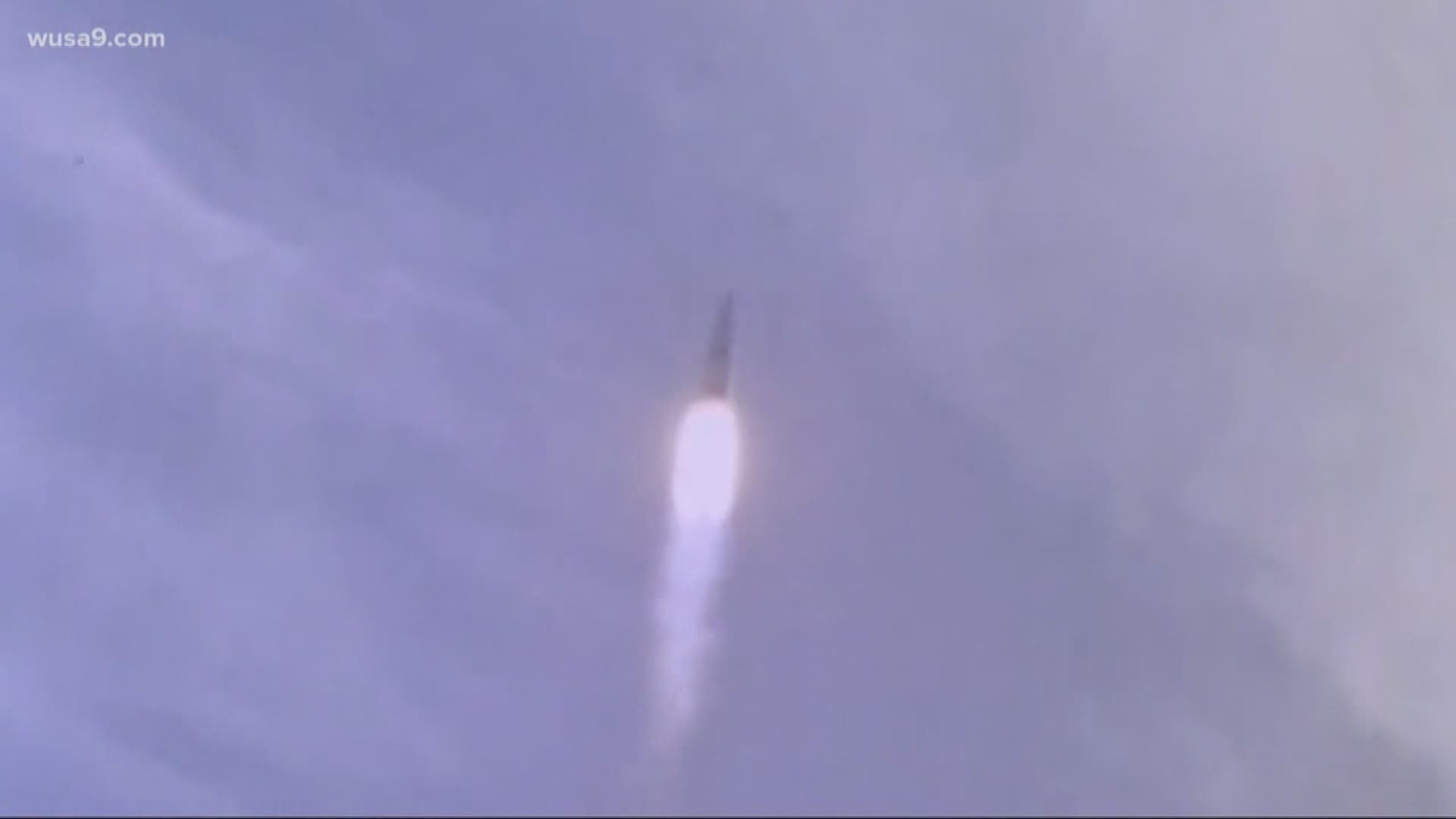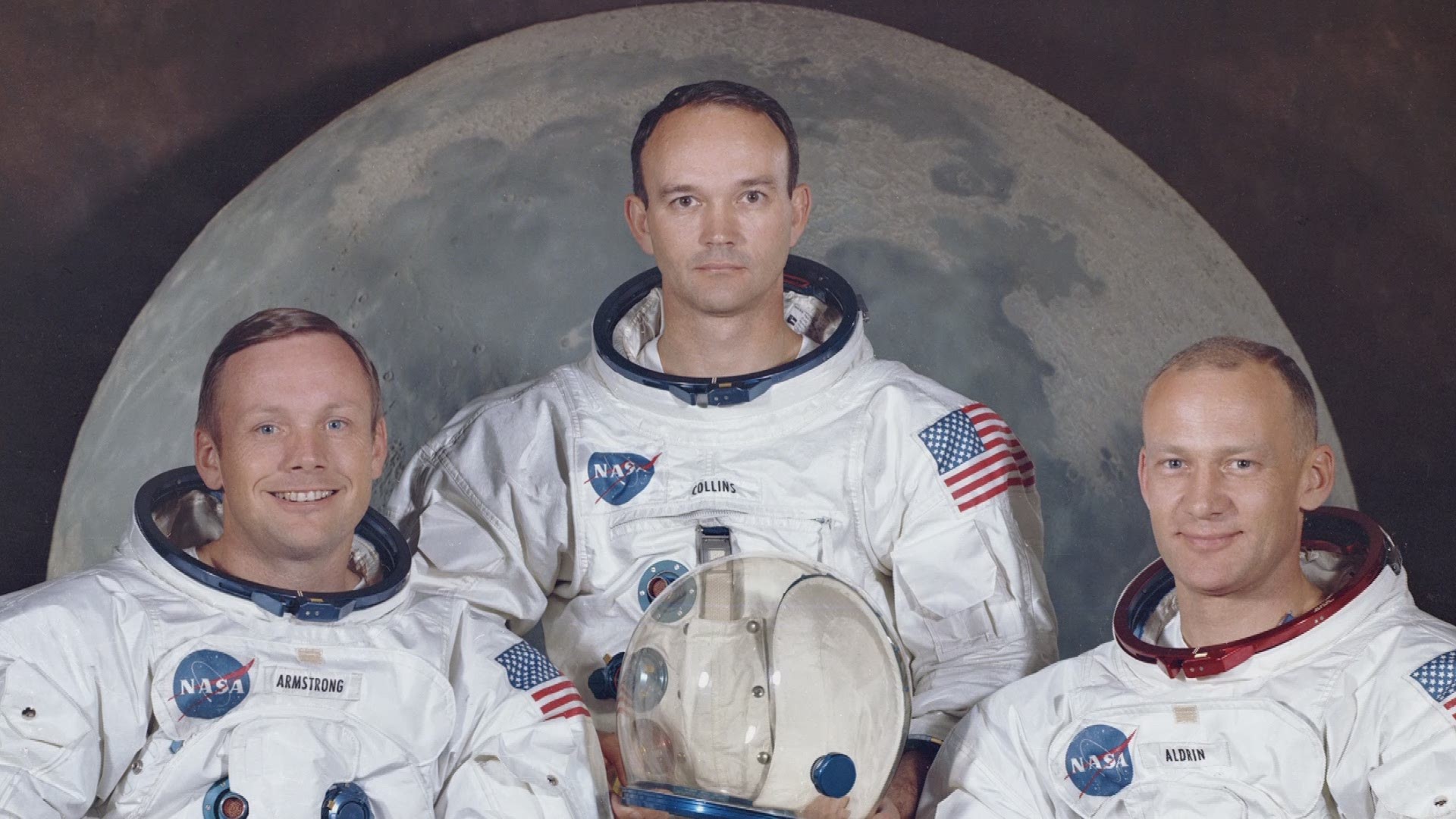WASHINGTON — Inside the National Air and Space Museum, Michael Collins sits in front of a replica of a Lunar Landing Module. Just like the one he watched descend to the Moon surface 50 years ago.
“I wasn’t so worried about (Buzz and Neil’s) descent and landing nearly as I was about their return. If that engine didn’t ignite there were two dead men on the moon,” Collins said.
Michael Collins never set foot on the moon. Lost in the excited shuffle of the Lunar Landing in 1969, is the role he played in getting to the moon and successfully bringing everyone back to earth. Fifty years later, inside the museum wing dedicated to he and his fellow astronauts, he reflected.
“It’s hard to feel 50 years, how would you go about feeling it?” Collins asked.
He started his recollections with how he felt that week. The moon mission was the culmination of a decade of NASA work jump started by President John F. Kennedy. On July 16, 1969, that dream took flight from Kennedy Space Center in Florida.
“I think of the Apollo mission as being a very long and fragile Daisy Chain of events. What link in that chain is going to get broken?” Collins asked. “Are we going to go all the way to the Moon? All the way around? Watch these two guys land? Watch them come back up? And make it all the way home?”
As he recounts his story, Collins never looks less than happy. A smile sits on his face as he goes into the details.
“Going to the moon that couple of days to get there we didn’t see the earth, we didn’t see the moon 'till we go there,” Collins explained.“That’s because we were circling around sideways like chicken on a barbecue.”
Collins’ role on the mission was to be the pilot of the spacecraft. His role was to navigate the Columbia to the orbit of the Moon. Then he would detach the Columbia from the Lunar Lander “The Eagle.” While the Eagle dropped to the moon’s surface, Collins would orbit the moon and wait for Armstrong and Aldrin to return.
When he is asked about that lonely orbit, you can tell from Collins’ good-natured sarcastic response, he has heard this question a million times.
“’You were the loneliest person in the whole lonely sequence of lonely events going to the lonely Moon and you were behind the lonely Moon in the loneliest orbit that a person had ever been subjected to. Weren’t you lonely?’” Collins mockingly asked.
“The answer was no, I wasn’t lonely. I was happy,” Collins said. "The Columbia was a happy home. I had hot coffee. If I wanted, I had music. I trusted the machine. I trusted Neil and Buzz and their machine. It was a happy time for me. I wasn’t lonely at all.”
Then the conversation turned to the two men on the Lunar surface: Buzz Aldrin and Neil Armstrong. Collins explained his only concern was if they could make it back to him in the Columbia.
“I didn’t have any landing gear. I couldn’t go down and help them,” Collins said. “That was just part of the flaw in the landing. But, it was a risk we didn’t know how to work around and we were willing to accept.”
In the end the mission was a success. The three men returned to Earth as heroes. While Collins didn’t stand on the Moon, his work was crucial to the mission’s success. As he reflects on the last 50 years since Apollo 11, Collins looked forward to the next mission.
“I’d like to the take (President John F. Kennedy’s) approach to the moon and use that for Mars,” Collins said. “I’d like for us to go to what I would call JFK Mars Direct Mission.”
Fifty years might be hard for him to put into words. But, that spirit of adventure he felt in 1969 is still visible on his face in 2019.


